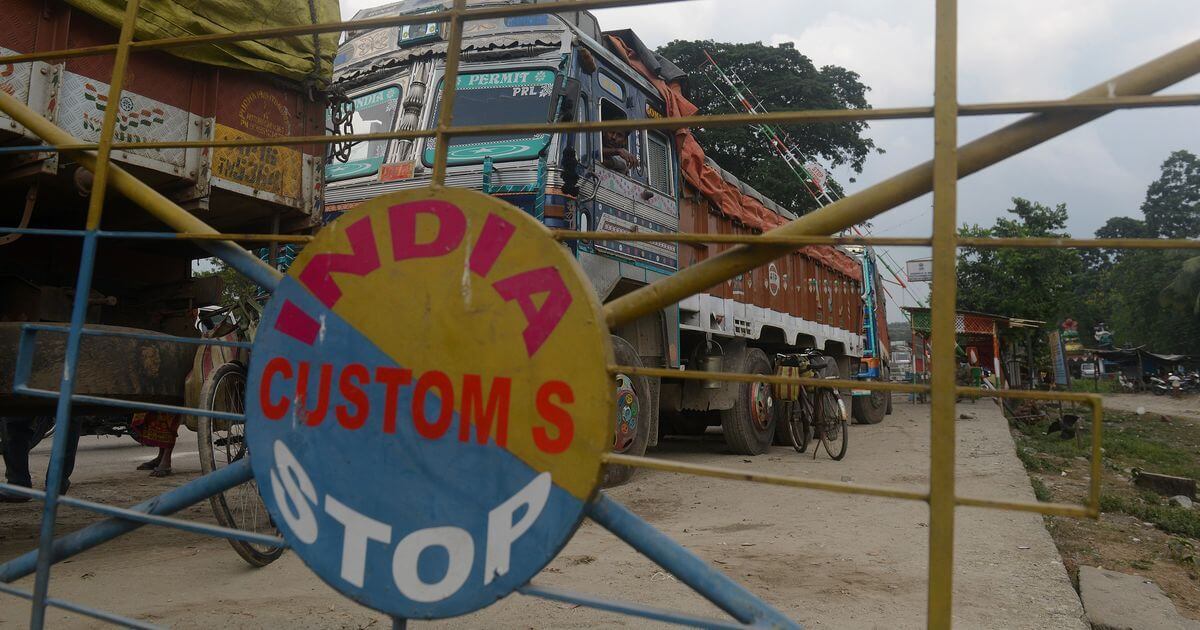On Thursday, India announced new laws changing the legal framework that determines the rules on bidding for government projects by companies and individuals from neighbouring countries. The finance ministry released an official statement, which read: “The Government of India today amended the General Financial Rules 2017 to enable the imposition of restrictions on bidders from countries which share a land border with India on grounds of defence of India, or matters directly or indirectly related thereto including national security.”
According to the newly amended General Finance Rules, 2017, such entities will now require special permission from a “Competent Authority”. The statement said, “The Competent Authority for registration will be the Registration Committee constituted by the Department for Promotion of Industry and Internal Trade.” Further, the amended rules state that “Political and Security clearance from the Ministries of External and Home Affairs respectively will be mandatory”.
The amended rules apply to “goods, services (including consultancy services and non-consultancy services) or works (including turnkey projects)”. It also includes “public sector banks, financial institutions, autonomous bodies, Central Public Sector Enterprises (CPSEs) and Public Private Partnership projects receiving financial support from the Government or its undertakings”.
However, there are two exceptions under the order. Firstly, in light of the COVID-19 outbreak, until December 31, the statement exempts medical supplies from such restrictions. Secondly, it exempts investments by bordering nations who India assists in development projects by the provision of loans or grants. This includes Bangladesh and Nepal, who, according to the Ministry of Home Affairs, would be exempted from the procedure stipulated under the newly amended rules.
India shares a border with Pakistan, China, Bangladesh, Nepal, Bhutan and Myanmar. However, while the rules do not specifically target any specific country, it is clear that it is intended to detrimentally affect Chinese entities in India. The announcement comes amidst reports of China’s refusal to withdraw troops along the Line of Actual Control (LAC) as promised. Previously, China had committed to disengagement and de-escalation in the area.
India-China Border Dispute Coverage:
- India-China Skirmishes in Sikkim and Ladakh Leave Several Soldiers Injured
- Indian Army Chief Addresses Simmering Tensions with Nepal, China, and Pakistan
- Multiple Chinese Army Incursions Reported Along LAC, Indian Army Chief Takes Stock
- PM Modi Meets With Top Military Brass to Discuss Escalating Indo-China Border Tensions
- Donald Trump Offers to “Mediate” India-China Border Dispute
- PLA Keeps Up Pressure on LAC Amid Border Tensions with India
- India, China Increase Military Presence Along LAC
- India, China Agree to Gradual and Verifiable Disengagement in Eastern Ladakh
- India and China Pull Back Troops From Three Key Areas in Eastern Ladakh
The announcement is in furtherance of India’s decision to impose economic sanctions against China’s aggression along the LAC. Nitin Gadkari—the Minister of Road Transport & Highways, the Minister of Shipping, and the Minister of Micro, Small and Medium Enterprises—had already announced his decision to exclude Chinese companies from bidding on highway projects. Further, the Indian Railways’ Dedicated Freight Corridor Corporation of India Limited (DFCCIL) announced their decision to terminate a contract worth Rs. 471 crore with a Chinese firm.
India previously said that it intends to impose measures to reduce its dependence on Chinese markets, while also increasing “inspections, product testing, and enhanced quality certification requirements”. Apart from imposing “strict quality control and higher tariffs” on China, India’s Trade Ministry is also looking into other measures that can be implemented without flouting the trade rules as per the World Trade Organisation (WTO). The state-run Bureau of Indian Standards also said that it is assessing the implementation of stricter measures on the import of 370 products, including electronics, chemicals, and pharmaceutical products. Indian officials are also considering whether to curb the import of 1,173 “non-essential products”, including toys, plastic, and steel products.
Also Read: India Blocks 59 Chinese Apps Over “Sovereignty and Integrity” Concerns

